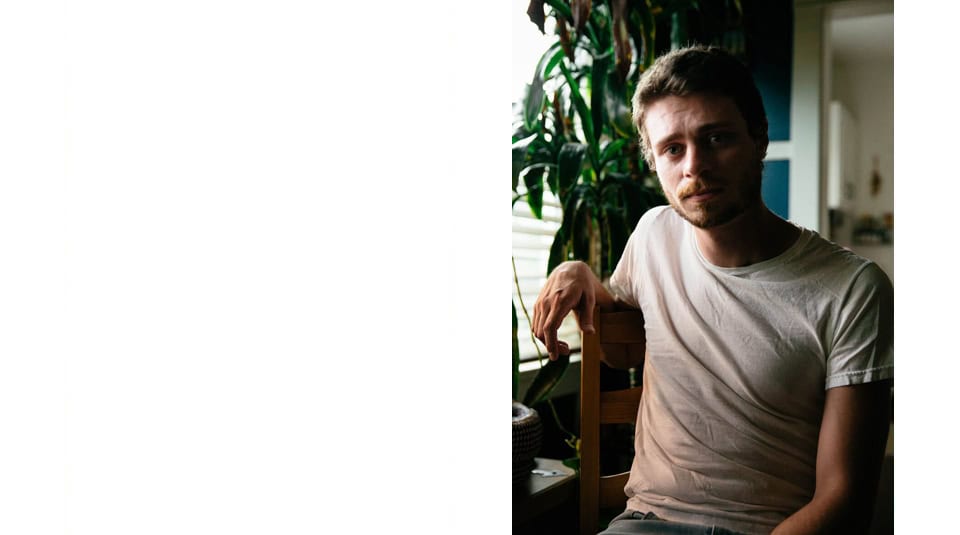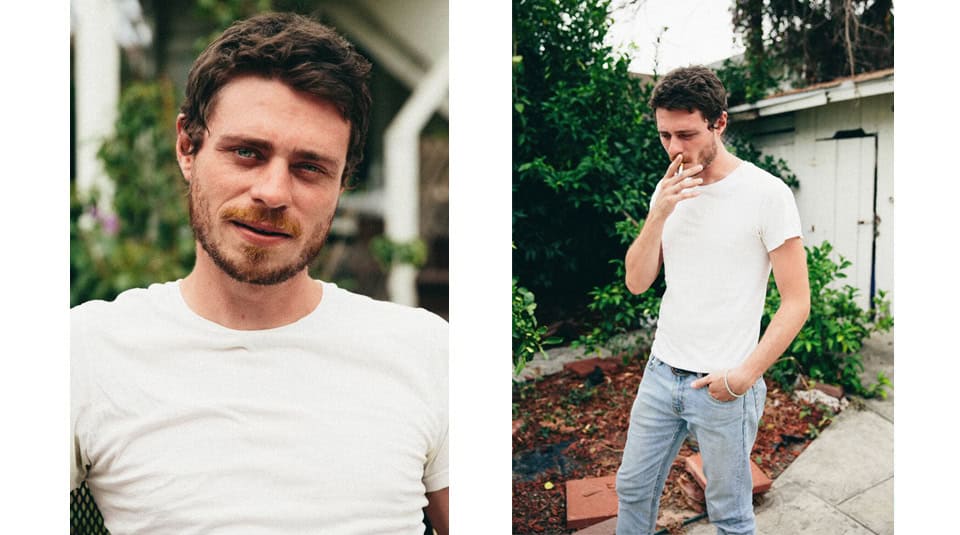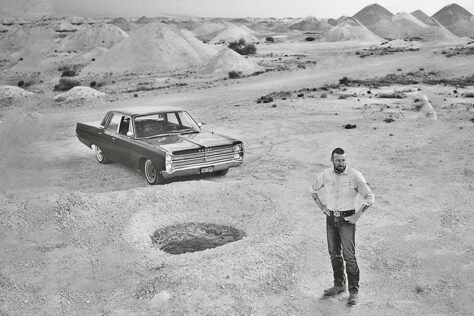Tragedy and significant life events don't always mean that you're changed for good. That takes a lot of effort on the part of the individual.
There was an insightful conversation with Natasha Lyonne and Keegan-Michael Key at the Sundance Film Festival last year that resurfaces from time to time. That YouTube algorithm is something! In the moderated chat with New York Magazine’s Kyle Buchanan, Lyonne serpentined towards one favorable opinion: “I think that’s sort of why people love Bill Murray so much—he’s so fucking relaxed. Whoever it is that lives between Bill Murray and Jack Nicholson is like the dream state of an actor.” Key nodded along enthusiastically, “That’s the perfect way of putting it.”
Without launching into a losing game trying to measure some poor chap’s proximity on a Murray-Nicholson continuum, it’s simply nice to get lost in a performance once in a while that appears completely seamless and without affectation. There are three league-of-their-own performances of that sort from the 50-plus movies we sat down to watch in the past month: eight-year-old Timothé Vom Dorp in Gilles Marchand’s Into the Forest, the always-reliable Kévin Azaïs in Morgan Simon’s A Taste of Ink, and Michael Patrick Nicholson in Xander Robin’s Are We Not Cats.
In Robin’s film, Nicholson disappears into Eli, a thirtysomething who loses his job and lady in one night. What’s worse, his parents spring the news that they’re moving to Arizona, leaving him homeless in New York City. His sole possession a box truck passed down from his dad, Eli turns to his buddy for a leg-up, successfully turning his moving home into a moving gig. This brings him around Anya (Chelsea Lopez), and the film dives headlong into the world of trichotillomania and trichophagia: the compulsive pulling-out of one’s own hair and the consumption of same.
Anthem met up with Nicholson in Los Angeles for an exclusive portrait session, and sat down to discuss his rising star as an actor, true-to-life characters, and Eric Pennycoff’s Sadistic Intent.
Are We Not Cats will arrive in early 2018 and Sadistic Intent recently wrapped production.
I don’t want to sound trite, but you’re so good. I had no idea who you were when I saw Are We Not Cats and it was a “Who is this guy?” moment. How did you and Xander meet?
Oh thank you. Our relationship goes back to making student films in college. We were always making the stranger ones that involve body horror, and this nervous and neurotic character. Every movie that we’ve done since has sort of been an exploration of that same character. Of course, there are differences between these movies, but… I don’t know if you know this, but we did a short film in, I think, 2012 that was titled Are We Not Cats. It’s based on the same theme. We’ve been working on this for probably three to four years before we ended up shooting the feature. It was sort of a discussion over a long period of time about how it would play out. So by the time we got to set, I think we both knew what to expect from each other, and it was an independent film so we knew we would be running and gunning. We needed to trust each other.
I haven’t seen Xander’s shorts, but I know you also made The Virgin Herod. The impression I got is that it’s also body horror and about this guy’s neuroses like you’re talking about.
Right. That’s essentially the first time we worked together.
You guys went to Florida State. Were you in the theatre school there?
I actually studied english and creative writing. I was sort of alien to that world, even though I’ve been acting since I was a kid. I had some friends that were in the theatre program and in the film school, so I think I would’ve been into that despite what I studied.
So you did get your start early on. Did you pursue acting or did it find you, so to speak?
I always loved it, but I saw myself more as a folk musician and a singer/songwriter and pursued that more so, honestly. I feel like studying writing and literature and all of that, you know, kind of served me as an actor better than probably a lot of training would’ve done.
I did see your name attached to a band called The Shufflers. I wasn’t sure if it’s a living act.
Yeah, that sort of vaguely still exists now. [Laughs]
I saw some Q&A clips of Xander at festivals and I could never tell how serious he is in describing this headlong dive into trichotillomania and trichophagia. Is it autobiographical?
It’s funny because, when I view the film now in a crowd at festivals, it has very little affect on me squirm-wise. I’ve become desensitized to it. But yeah, it is a very personal thing for Xander. I think everyone can relate to it if you think about obsessions and neuroses. I know he has family members who dealt with it and I know he suffers from it to a minor degree. For me, I was up for anything and I trust Xander. I found my own ways to get into the role. I did a bunch of research and it’s not such a strange thing to find entry into. It’s a lot more common than people think it is.
I had known about trichotillomania and how people compulsively pull out their hair, but I had no idea some people then eat it, which just takes this to another level.
That’s something I do when I sit there and read a book—I pull at my beard. Maybe I have it. [Laughs] No—it is a thing where people consume it and what you see at the end does happen.
That is the film’s body horror, which rears its head later on. But, again, my biggest takeaway was this sincere portrait of a guy. When Anya asks Eli, “What is the last memory you have of not being totally alone?” it cuts deep because we’ve seen him go through a mess of shit. There’s nothing phony about him. Did you like your character on the page right away?
It was a difficult character. I think it’s easy to play the emotional loner—the depressed, sad guy. That’s always a boring take on it. That gets old real fast and maybe people want to slap you in the face. Maybe people do want to slap me in the face, but… [Laughs] The script was more a treatment as far as my character was concerned. It goes back to the earlier questions of how Xander and I arrived at this. It was mostly plot and the dialogue was sort of sketched out. A lot of the scenes were improv. It helps to have actors that are great to play off of. Chelsea Lopez was great and she gave me a lot of ideas. We worked really hard on those scenes. I can’t take all the credit.
In my experience, actors will more often admit, “I can’t imagine not liking my character,” despite outwardly unlikeable characteristics about them. For instance, there’s desperation in Eli, but it’s never pathetic in your portrayal. You more want to throw a blanket around this guy. Was it ever a concern that Eli might come off differently than you intended?
Absolutely. That was one of my big concerns going into it. When you go into a role, whether you like the character or not, you find what you’ve got to give. When I see the movie now, I really appreciate the performance in the way it serves the story. But when you walk off set, it’s in somebody else’s hands. I did my job, I left, and now the editor is going to make it into what it is. So in many ways, I don’t recognize the performance, but not in a bad way—in respect to my role in the film. I saw the character as, not a victim of his circumstance, but someone who’s angry. I don’t think he was depressed. I don’t think he was sad about his situation. I felt like there was a certain amount of violence that goes along with being in that sort of situation. I think he’s a sexually aggressive person given the right circumstances, even though he’s unassuming, you know? It sort of takes a violent person and someone sort of disillusioned to fulfill the ending of this film.
It was interesting to hear Xander describe the film as a sort of anti-coming-of-age—his reasoning being that Eli doesn’t necessarily end up in a better place at the end of the film. But I do feel like it’s still high-stakes for him. What was your take on Eli’s journey?
It did end up being a weird parallel to my life because I was kicked out of my apartment in the middle of shooting. It was this state of homelessness while we were in production, which I guess fueled the fire. In life, you maybe take tiny steps forward. I think Eli ends up in the same situation he begins in. It’s not better or worse—it’s just different. I don’t think he has really grown. He ends up with somebody who probably isn’t going to be good for him. I think it kind of insinuates towards the ending that this is just going to keep going. Nobody really learns a lesson I don’t think.
I think it’s true to life whenever you see that on screen because our lives aren’t constantly redefined by these mushroom cloud events. It’s certainly less dramatic in the context of a film to see Eli take tiny steps forward like you’re talking about, but it’s more relatable.
Right, and it’s difficult to change as a person. Tragedy and significant life events don’t always mean that you’re changed for good. That takes a lot of effort on the part of the individual. I think this is a guy who maybe feels like he made a change, but in the end, he’s still kind of riding off other people, too. He begins by living with his parents and all of that, and feeds off this girl.
To me, the film has this blue collar identity to it. There’s Eli, who’s truly working class. I also learned that he’s an amalgamation of Xander and his dad, who was a superintendent, a truck driver, and a garbage man in the ’60s. Then you see how this film came together: Xander looked on unemployment websites to find people and went onto reveal how it worked in his favor to shoot in February because it’s a chilly month when people are less likely to work and less likely to leave for another gig. I mean, that stuff must all inevitably work its way into your psyche as an actor, maybe similar to how getting kicked out of your apartment does.
Yeah, absolutely. To make a movie like this on the budget we made it for, it took a lot of sacrifice for everybody on set, and primarily for Xander and our DP. Everyone was calling in every last favor and, you know, we were shooting 14, 16-hour days in the middle of dead winter. It was zero degree weather in New York City, which isn’t the most fun. It was physically taxing. There was a sort of desperation to the filmmaking process that I felt kind of embodied the work itself. It probably energized it in some way. Had any of us failed at our jobs, it wouldn’t be a decent film. It could’ve been a disaster. None of us would’ve made another movie after this probably. [Laughs]
Was there a definite start and end date to the shooting?
We did do a solid month of principal photography. We continued to shoot pick-ups four, five months later whenever anybody had free time. Actually, we shot some new stuff for the ending three, four months ago. There’s new content that might be coming out in the final release.
And you shot a bulk of this in a warehouse that stood in for multiple locations?
Right. Xander ended up renting out a giant warehouse in Staten Island and, actually, the owner of that warehouse is in the film. He plays Anya’s father who owns the logging business. Xander was really great about finding non-actors that were performers in everyday life. He put them to work in front of the camera. The bald guy at the junkyard was just on set one day because he was a friend of the garbage truck driver who we borrowed that truck from. There was a lot of running and gunning, which I think gives it a nice immediacy. A nice sense of panic is always there.
Even if it’s just for a day, does working with non-actors change your approach at all?
It doesn’t so much. I actually enjoy it because it makes me feel less like an actor. It helps you to be more true. They call bullshit on you when you’re improv-ing with a non-actor. In a lot of ways, I consider myself a non-actor. I don’t really have training. I figure it out as I go along. I think it’s the same for these guys walking on set for their first day: “Well, I’m just gonna do it.”
Did you shave your head for real or get to wear a bald cap?
That was special effects, but in the final version there will most likely be a shaved head. [Laughs]
I actually reached out to Ted Geoghegan because I know him a little bit from New York. He was nice enough to send me a link to We Are Still Here. That was your first feature, right?
Oh cool. Yeah, that was my first supporting role.
And that came out in 2015. You’re so fresh on the scene—like a new action figure.
I am. Ted actually saw the Are We Not Cats short at the Boston Underground Film Festival, I believe a year before we shot We Are Still Here. He just liked what I did and got in touch with Xander, and we went from there. That was a fun, spooky shoot.
I enjoyed the creature effects in that. I hadn’t quite seen anything like that before. They’re like molten… I don’t know what to call them. What did you call them on set?
I think we just called them “family.” [Laughs]
It’s always interesting to look at the different networks and connections that exist, within the independent world especially. How would you describe your creative community?
God, I don’t even know. It’s all been so natural the way it happened. And Ted was actually in We Are Not Cats. He was definitely there for a scene or two. He’s in the Sludge Club scene. I think anytime you’re on set with like-minded people, they see your work ethic and your interests, and you’re bound to work with them again, especially in independent film. You hang onto the people that you love. It’s kind of strange how we carved out this thing with an edgy, horror vibe to it.
You have a metal horror film coming up. Director Eric Pennycoff describes it as, “A brooding and vicious portrayal of ambitions gone awry, Sadistic Intent delves deep into the fragmented psyche of two bandmates hellbent on achieving greatness.” Are you a fan of horror?
I am a horror fan, but I wouldn’t say that I’m an aficionado. I don’t have a huge horror collection and my knowledge is pretty superficial I would say. I’ve worked with Eric before and he has this association with Glass Eye Pix and Larry Fessenden. Eric and I just really got along and we had actually been planning a movie to shoot a year-and-a-half ago that fell through money-wise. He just told me to hang on and we’ll find something and figure it out. He called me back a year later and I ended up quitting my job to come out to Indiana to shoot Sadistic Intent, which turned out to be a great experience. We had some great actors on that set. I think it’s going to be pretty scary.
Where are you normally based these days, Michael?
Right now, I’m based in Brooklyn just working shit jobs and trying to figure life out. [Laughs] I’m trying to move towards making more movies and making that a full-time job.
You’re a huge talent. I’m really looking forward to seeing your career blossom.
I really appreciate that. I guess the reason I like working with these directors is they let me have the freedom to explore my own ideas about it, we talk about it, and figure it out together. It’s been a painful and grueling—and really rewarding experience. It digs deep and kind of ruins your life for a little bit while you shoot. I hope people go see Are We Not Cats. I think it will surprise them.



 Clarion Call: Garrett Hedlund
Clarion Call: Garrett Hedlund A Conversation with Simon Baker
A Conversation with Simon Baker
No Comments